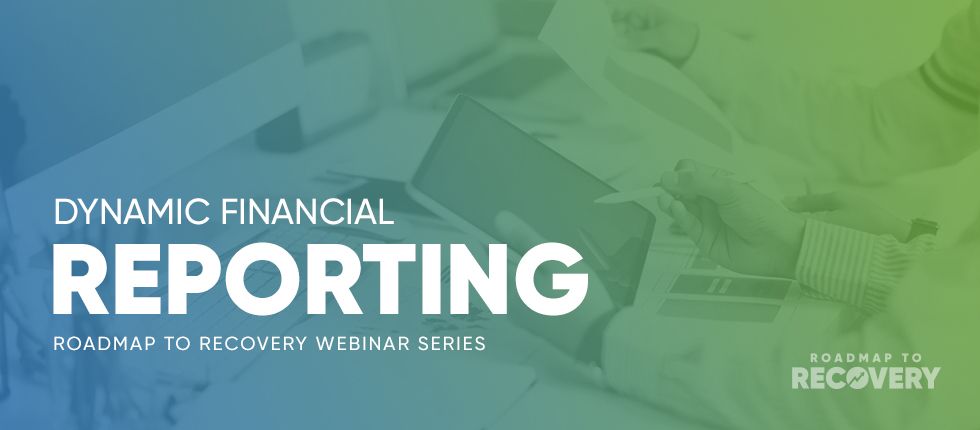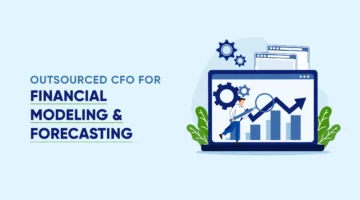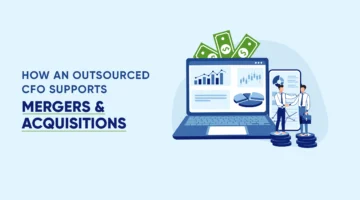Roadmap to Recovery: Dynamic Financial Reporting
A big part of creating your company’s roadmap to recovery is prioritizing financial visibility. Dynamic financial reporting software helps your business innovate the way you utilize its financial data. Instead of a reporting system or process that only compiles a report after any problems have already happened, dynamic reporting helps you anticipate any problems in real-time. Take the next step on your company’s roadmap to recovery with dynamic financial reporting.
Why Dynamic Financial Reporting?
Traditionally, financial reporting happens after the fact. Payroll reporting is synthesized after payroll has been disbursed for the period. Cost reporting is completed after the expenses have already been paid out. The problem with this method is that, by the time the report is drawn, any errors in financial data have already passed you by.
Dynamic financial reporting, by contrast, is a reporting system that updates in real time. The system operates at the speed of the market, so your business model always stays competitive. You can also sort the impact of your financial data by variable or department easily with a dynamic system. This way, you ensure that the reports you use for business decisions is always timely and relevant.
Prevent Reporting Errors
One of the biggest issues businesses have with traditional financial reporting is use of irrelevant data. Typically, the traditional method includes creating reports only for set processes like payroll, production, and overall expenses. This could contribute to the consensus that traditional financial reporting is becoming obsolete. The data is reported after the fact and does not reflect all the intangible variables that make your business and its finances unique.
A dynamic financial reporting system allows your business to stay agile with financial data as it becomes relevant. This includes diverse reporting capabilities and real-time integration. When you need to make a big business decision, your business suffers when you have to rely on out of date financial data. A dynamic system helps your business prevent reporting errors and gives you the data you need for the big decisions.
Benefits of a Reporting System
Normal reporting tools do not track the movement of your financial data as it happens. Any issues with the data or the process are not reported until the statement is compiled. This method of reporting does not allow for predictive or even real-time course correction. This sort of dilemma is why many businesses do not see financial reporting as a viable business tool.
However, financial reporting is pivotal to achieving financial visibility for your company. Financial visibility is especially important when the business is on the path to a period of economic hardship like the one caused by COVID-19. Dynamic financial reporting allows you to choose which areas you use your reports to monitor.
When using a dynamic reporting system, you choose which variable you want to track, and the system takes care of the rest. You are not forced to wade through irrelevant financial data or outdated reports, and your company has a way to measure their success or adapt to problem areas in real time.
Implementing the Process
Many businesses are hesitant to implement new systems or processes for fear they may not be compatible with their standard processes and procedures. Dynamic financial reporting software integrates with your other operational systems, including your enterprise resource planning (ERP) software and your customer relationship management (CRM) system. This way, the software can compile a comprehensive set of reports based on all the variables that are important to you and the way you run your business.
The COVID-19 pandemic has caused a lull in business for many businesses. This lull is the perfect time to implement new processes and systems to improve your company’s operational structure without interrupting your day-to-day operations. You will need enough time to install the software, transition to the new system and give your employees time to train on the new process.
Traditional financial reporting is quickly becoming obsolete in today’s business world, even before the changes brought on by the COVID-19 pandemic. In the new economic landscape, having access to dynamic financial data is especially important to getting your business on the path to post-pandemic recovery and success. Take control of your business’ financial visibility with dynamic financial reporting.



